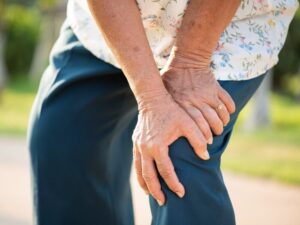Arthritis Management with Ayurveda
What is arthritis?
Arthritis is a common condition that causes pain and inflammation in the joints. It can affect people of all ages but is most commonly seen in older adults. There are several types of arthritis, with the most common being osteoarthritis and rheumatoid arthritis. Symptoms can range from mild discomfort to severe pain, making it essential to seek effective arthritis management.
Types of arthritis
- Osteoarthritis: The most prevalent form of arthritis, usually affecting older adults. It occurs when the protective cartilage that cushions the ends of your bones wears down over time.
- Rheumatoid arthritis: This autoimmune disorder primarily affects the lining of the joints. It causes painful swelling that can eventually result in bone erosion and joint deformity.
- Gout: Sudden, severe attacks of pain, redness, and tenderness in your joints (often the joint at the base of the big toe).
- Psoriatic arthritis: Some people with psoriasis are affected by this condition, which is characterised by red patches of skin topped with silvery scales.
Symptoms of arthritis
- Joint pain
- Stiffness, especially in the morning
- Swelling
- Decreased range of motion
- Redness around the joints

Ayurvedic perspective on arthritis
In Ayurveda, arthritis is considered a condition resulting from an imbalance in the body’s doshas (Vata, Pitta, and Kapha). Each type of arthritis corresponds to different dosha imbalances:
- Osteoarthritis (Vata dosha): Caused by the aggravation of Vata, leading to dry and rough joints.
- Rheumatoid arthritis (Ama Vata): Linked to the accumulation of toxins (Ama) and the aggravation of Vata.
- Gout (Vatarakta): Associated with imbalances in both Vata and Pitta doshas.
Managing arthritis with Ayurveda
- Herbal remedies: Herbs like Ashwagandha, Shallaki (Boswellia) and Guggulu help reduce inflammation and pain. These Ayurvedic herbs for arthritis are well-regarded for their effectiveness in arthritis pain relief.
- Panchakarma therapy: Detox treatment that helps remove toxins from the body, thereby balancing the doshas and reducing arthritis symptoms. This holistic approach is a key aspect of Ayurvedic arthritis treatment.
- Diet and lifestyle changes: Consume anti-inflammatory foods such as fatty fish, berries, and green leafy vegetables, practising yoga, and avoid Vata-aggravating foods like cold and raw foods, to manage arthritis effectively.
- Abhyangam (oil massage): Regular massages with medicated oils can lubricate the joints, improve flexibility, and reduce pain. This form of natural arthritis remedy is beneficial for overall joint pain relief.
- Hot and cold therapy: Alternating hot and cold compresses can help reduce joint inflammation and pain, contributing to effective arthritis management.
Arthritis can have a significant impact on one’s quality of life, but Ayurveda’s holistic approach can help manage and reduce its symptoms. At the Indian Ayurveda Centre, we provide a wide range of Ayurvedic therapies for joint pain to manage your arthritis condition. Contact us today for more information or to book a consultation.
Please note that all Ayurvedic therapies mentioned above are non-medical and non-invasive procedures. The therapeutic recommendations are made in consultation with our senior consultant, Nicy Augustine Kachappilly (BAMS, Calicut University, Kerala, India; a non-medical qualification in Ayurveda).
- 8186 3452
-
Monday, Thursday & Saturday 6pm - 9pm
By appointment only -
Blk 352, Clementi Ave 2 #01-101
Singapore 120352 -
Dover Exit A, Bus 74 (2nd bus stop)
Clementi Exit B, Bus 52, 154 (3rd bus stop)
